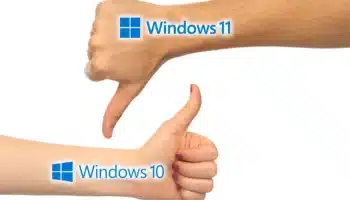New Chinese Involvement Could Trigger HD DVD Price Plunge
If ever there were a time for either Blu-ray or HD DVD manufacturers to play a trump card, now may be the time, and this could be the one: A consortium of Chinese university engineers and government officials, in cooperation with a Chinese video standards group that includes globally recognized manufacturers, plus the DVD Forum, have come to an agreement on a standard specification for a blue-laser disc mechanism and format specifically for the Chinese market.
The new group will be called the China High Definition DVD Industry Association, or just CHDA, and this is not the last you will hear of it.
HD Radio to Debut iTunes Tagging
Apple is taking a page from Napster and XM, using the new HD Radio service to debut a new feature called "iTunes Tagging."
Consumers with HD Radio receivers with a special tagging button would be able to mark songs for download from Apple's iTunes Music Store. Although it's not clear how exactly a user's tags would make it to iTunes, JBL and Polk would be the first to produce devices.
AOL to Drop Netscape.com Digg Clone
A little over a year after it relaunched Netscape.com to much fanfare as a social news site very similar to Digg, AOL confirmed Thursday it is pulling the plug, reverting back to a more mainstream Netscape portal. AOL will keep the Digg-like site alive, but at another currently undecided location.
Although Jason Calacanis, the man who was tasked to build the site, has long touted successes of the new Netscape.com, the site largely failed to catch on among AOL's visitor base. According to the company, its users wanted a more editorially driven experience on Netscape.com, not stories picked by a community. AOL says the move will not affect the Netscape Browser, although it's likely that integration with the social news site will be removed from future updates.
Firefox Tops 400 Million Downloads
Less than two years after it crossed the 100 million mark, total downloads of Mozilla's Firefox Web browser have now passed 400 million, although the number does not represent total installations. Since the release of Firefox 2 last October, the browser has continued to take market share from IE.
Mozilla is now working on version 3 of Firefox, which is currently in its alpha stages of development. The update has seen a number of delays and a beta release is not due until the fall, but that hasn't slowed adoption. According to the company, Firefox usage in Slovenia is nearing 50 percent market share, which would put it over Internet Explorer for the first time anywhere in the world.
Microsoft Details Office 2008 for Mac
Microsoft began offering a few details of its upcoming release of the Office 2008 suite for the Mac platform, by first listing work to Entourage to further support Exchange services and features.
In a post to the Mac Mojo Web log, Mac BU General Manager Craig Eisler said that support for Exchange within Entourage 2008 would be the company's most reliable to date. He said that he had been using the builds of the product for two months and was "delighted" by the stability, reliability, and interoperability.
HD TiVoToGo Coming in November
More than a year after the first high-definition TiVo made its debut, customers of the original Series3 and new TiVo HD will in November receive access to the DVR's TiVoToGo and Multi-Room Viewing features. The capabilities had been disabled due to concerns about sharing copy-protected HD content.
TiVo had to obtain permission from CableLabs, which licenses the CableCARD technology used by the high-definition TiVos. The delay stemmed from CableLabs not approving TiVo's digital rights management that would protect HD recordings from being pirated. CableLabs recently certified the DTCP encryption standard, which may be what TiVo has chosen to employ.
Patent Reform Debate Begins; Bush Signals Opposition to Key Elements
For more: Patent Reform Passes US House 225 - 175, Senate May Follow
As debate on patent reform began this morning on the floor of the US House of Representatives, twelve amendments made their way through the Rules Committee, all of which appear to be designed to tweak the bill's language rather than insert any "poison pills" that would ensure its failure. The only significant opposition appears to have come yesterday from President Bush, whose office came out yesterday condemning H.R. 1908's key provision limiting damage awards in infringement suits.
Apple Looking to Cut TV Show Prices
Apple has begun an effort to convince networks and studios providing it video content to allow it to cut prices in half, meaning most television shows sold through iTunes would retail for 99 cents.
According to news reports, the idea has gotten a cool reception from Hollywood, which in many cases is looking to make more money from video downloads. However, Apple believes that a price cut could lead to a boon in sales, and would soften the blow of any revenue loss.
Parts of Patriot Act Ruled Unconstitutional
Parts of the Patriot Act having to do with the disclosure of Internet records were struck down as unconstitutional Thursday. The American Civil Liberties Union had challenged portions of the revised law, which would have allowed the government to seize records of ISPs without informing the customers or obtaining a court order. Central to the ACLU's argument was that the new law that would have allowed the government to use "national security letters" to compel businesses to turn over customer information without a court order.
U.S. District Judge Victor Marrero agreed, saying that the courts had the right to oversee any government searches, and that the new law was unconstitutional in the way that it did not respect checks and balances and the separation of powers.
Square Enix Frustrated With PS3 Marketing
Square Enix president Yoichi Wada took Sony to task Friday, saying the future success of the PlayStation 3 console may be in doubt "if its marketing strategy is not straightened up."
The PS3 was initially marketed as a home entertainment product, however pressure from game developers has caused Sony to market the device more as a gaming machine. The resulting confusion has some game developers upset, including Yoichi.
Adobe: Web-Based Photoshop Coming Soon
Adobe has taken the wraps off of Photoshop Express: a free, stripped-down version of its signature image editing software that will be available online.
The company first began development of the product early this year, and envisioned it competing with offerings from other companies such as Google's Picasa. It runs within the browser and is completely Flash-based.
Acer's Growth Hiccups as Lenovo Reclaims World #3 PC Maker Position
We've been using the term "resurgent" in conjunction with Acer so often that you'd begin to think it was a brand name for a new PC model. But in the quarter just ended the surge failed, so to speak, as hardware analysis firm iSuppli reports unit shipments for Acer fell by 10,000 for the first time in several quarters.
For the second quarter of 2007, the "resurgent" tag belongs elsewhere: first to Lenovo, which responded to Acer's first quarter challenge with flying colors. Shipping 22.9% more units in the second quarter than it did in the first, Lenovo pumped out about 4.87 million PCs. In so doing, it bumped Acer in iSuppli's global Top 5 OEM list back down to #4, and took back 1.5% of market share.
DOJ: 'Net Neutrality' Precludes Broadband Investment, Threatens Free Markets
In a filing before the US Federal Communications Commission this morning, the Dept. of Justice's Antitrust Division argued that proponents of "net neutrality" would stifle the natural course of free market innovation in Internet technologies, in the name of leveling the playing field for competitors. Creating different tiers of Internet service, Assistant Attorney General Thomas O. Barnett's team argued, is really no different than the Postal Service charging different rates for shipping varying classes of mail.
"Much of the conduct that some proponents of 'net neutrality' regulation are concerned about can be precompetitive," the ATR team wrote. "Differentiating service levels and pricing, for example, is a common and often efficient way of allocating scarce resources and meeting consumer preferences. The United States Postal Service, for example, allows consumers to send packages with a variety of different delivery guarantees and speeds, from bulk mail to overnight delivery. These differentiated products respond to market demand and expand consumer choice. No one challenges the benefits to society of these differentiated products; nor does anyone seriously propose that the United States Postal Service be banned from charging different fees for next-day delivery than for bulk mailers. Whether or not the same type of differentiated products and services will develop on the Internet should be determined by market forces, not regulatory intervention."
Five Patches On Tap for Tuesday
By recent standards, September's Patch Tuesday will be mild, with only five patches and one being rated "critical."
In the past several months, Microsoft has dealt with more critical errors in its products with four in June, three in July, and six in August. However, this month, the only critical patch will be issued for a remote code execution issue within Windows.
Appeals Court Overturns Dismissal of Qualcomm Antitrust Charges
In what could become a precedent setting finding, a three-judge panel of the US Third Circuit Court of Appeals on Tuesday overturned a lower court's dismissal of antitrust complaints raised by Broadcom against Qualcomm. At the heart of the debate is whether the exclusivity rights granted to a patentee corporation should enable it to obtain a legal monopoly over markets the patented technology may create. US District Court in New Jersey said it should, when dismissing Broadcom's claims in August 2006. But the appeals court soundly rejected that basis, and reinstated the case.
"In dismissing Broadcom's claim of monopolization in the WCDMA technology markets," wrote Judge Maryann Trump Barry in her formal opinion Tuesday, "the [N.J. District] Court reasoned that Qualcomm enjoyed a legally-sanctioned monopoly in its patented technology, and that this monopoly conferred the right to exclude competition and set the terms by which that technology was distributed."
Most Commented Stories
BetaNews, your source for breaking tech news, reviews, and in-depth reporting since 1998.
Regional iGaming Content
© 1998-2025 BetaNews, Inc. All Rights Reserved. About Us - Privacy Policy - Cookie Policy - Sitemap.




